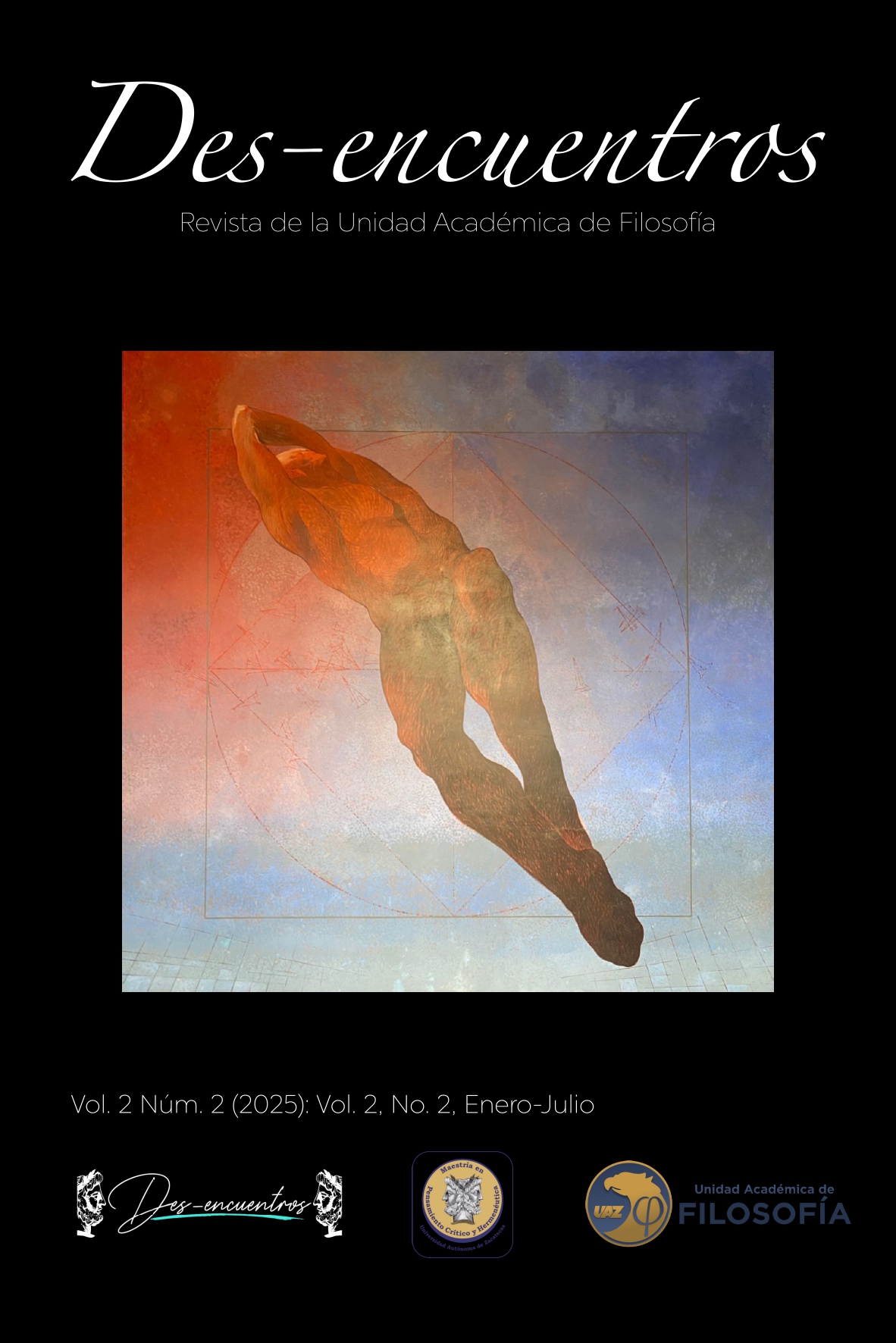"The Will to Dissolution and the Limits of Order: A Philosophical Reading of Control in Times of Complex Criminality"
Published 2025-06-05
Keywords
- Poder, Control social, Criminalidad, Tecnologías, Vigilancia
How to Cite
Abstract
Understanding power and social control in the 21st century requires abandoning rigid legal frameworks and linear causal explanations. In a context marked by volatility, global interdependence, the expansion of organized crime, and the erosion of classical normative references, traditional legal tools prove insufficient. Social systems no longer operate as stable structures but as dynamic networks that mutate, adapt, and, at times, simulate legality in order to function from the shadows. In this scenario, criminality ceases to be a peripheral anomaly and becomes part of a new complex ecosystem where anomie is functional. In light of this reality, the analysis of power and control must be expanded into a technological and epistemic dimension. From social media to tools like IBM i2 Analyst’s Notebook and artificial intelligence, a significant shift has occurred in the way states and institutions attempt to understand and manage complexity. These technologies not only allow for the visualization of data and information but also enable the construction of maps of relationships, flows, nodes, and behaviors that remain hidden to ordinary perception. In this sense, technology is not neutral: it is a device of power, a means of intervening in chaotic systems through an analytical rationality that transforms knowledge into surveillance.

